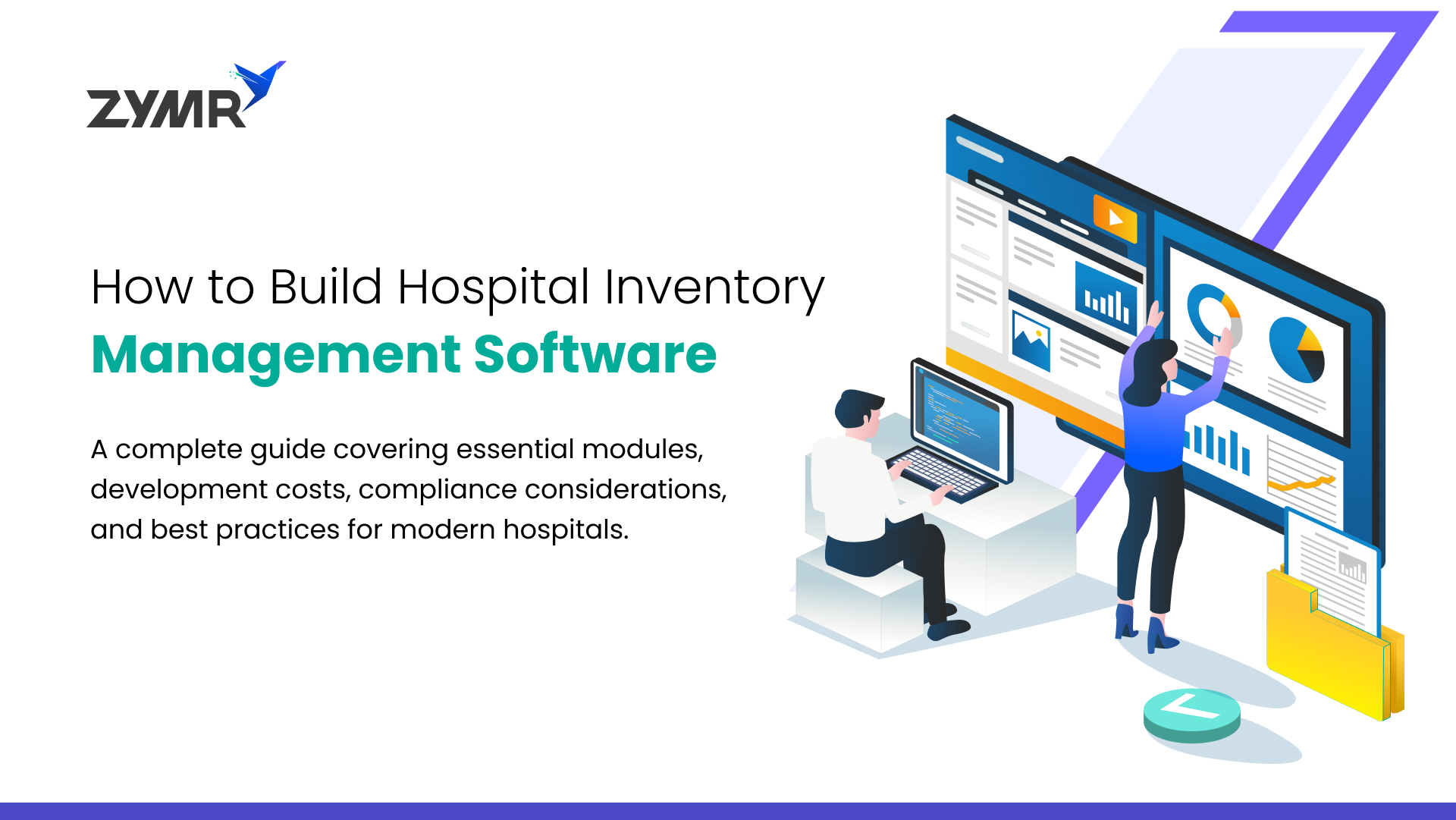The BFSI sector is undergoing a transformative evolution, leveraging technologies like Generative AI for personalized fintech software development. Dynamic credit scoring, advanced robo-advisors, and intelligent automation are streamlining fintech services for better customer experience. Blockchain, too, is encouraging cross-border payments and trade finance through DeFi. Embedded solutions create seamless user experiences, and the sector embraces the virtual realm with IoT and virtual storefronts. Robust cybersecurity, zero-trust architecture, and AI combat threats. Sustainability efforts include financing clean energy projects. Cloud-based technologies empower scalability, agility, and cost reduction. The current BFSI state reflects a dynamic landscape, blending personalized services, advanced tech, and sustainability commitment.
AI in BFSI
The fintech software development industry has begun the AI phase of the digital journey, disrupting traditional business models and paving the way for innovation. AI or cognition is changing the quality of products and services offered by the BFSI industry. It has provided better methods to handle data, improve customer experience, and redefine traditional processes, making them more efficient. With the advent of technologies such as AI, data has become the most valuable asset in a financial services organization.
- Personalized Financial Advice: One of the significant applications of AI in BFSI is personalizing financial advice. AI-powered robo-advisors, with the support of predictive analytics and machine learning, can provide highly personalized advice on investment decisions.
- Dynamic Credit Scoring: AI can also help fintech for BFSI by improving the credit scoring process. By analyzing a customer's financial behavior and transaction history, AI can predict the probability of default, leading to more accurate credit decisions.
- Fraud Detection and Prevention: AI or cognition can significantly improve fraud detection and prevention. By identifying previously undetected transaction patterns, data anomalies, and suspicious relationships, AI allows for a more proactive approach to fraud detection.
- Regulatory Compliance: Banks face significant scrutiny from regulators to provide accurate and timely reports to meet their regulatory obligations. AI-driven solutions offer a chance to address some of the challenges in today's financial systems by automating the data collection processes and enhancing an organization's readiness to meet regulatory compliance obligations.
Intelligent Automation
As fintech software development for BFSI services continues to navigate the complexities of the digital era, intelligent automation will play an increasingly critical role. By combining the strengths of RPA, AI, and human intelligence, these institutions can transform their operations, reduce costs, and deliver superior customer service.
- Role of RPA: RPA is one of the foundational elements of intelligent automation. It enables the automation of repetitive, rule-based tasks, thereby reducing error rates and increasing speed.
- Impact of AI: AI, on the other hand, brings in the capability to process and interpret information like a human. It can make decisions, learn from experience, and even understand natural language.
- Human Touch: While RPA and AI form the core of intelligent automation, the human element cannot be ignored. Humans bring creativity, strategic thinking, and customer empathy to the table, skills that are critical in the BFSI sector.
Blockchain Integration
With its decentralized and transparent nature, blockchain offers a myriad of benefits to the fintech offerings, including enhanced security, increased efficiency, and reduced costs. Let’s explore the transformative impact of blockchain in BFSI, its key benefits, and the various use cases that are reshaping the financial landscape.
- Capital Markets: Blockchain is revolutionizing capital markets by streamlining processes, reducing costs, and increasing transparency. It offers benefits in issuance, sales and trading, clearing and settlement, post-trade services, asset servicing, and custody. The elimination of single points of failure, streamlined processes, and digitization of assets contribute to improved efficiency and reduced counterparty risk.
- Asset Management: Blockchain is transforming asset management by automating fund launches, enhancing stakeholder engagement, and digitizing portfolio and existing holdings. It enables customizable privacy settings, voting rights, and incentive mechanisms, improving governance and transparency in the industry. Automated fund administration and transfer agency services further streamline asset management processes.
- Payments and Remittances: Blockchain has the potential to revolutionize global payments and remittances by reducing settlement times and costs. It enables rapid and secure domestic and cross-border payments, real-time gross settlement, and digitized KYC/AML data. The ability to tokenize fiat, stablecoins, and cryptocurrencies opens up new possibilities for efficient and cost-effective payment solutions.
- Banking and Lending: Blockchain is reshaping banking and lending services by streamlining processes and reducing counterparty risk. It facilitates authenticated documentation, streamlined credit prediction and scoring, automated syndicate formation, and asset collateralization. These advancements result in faster loan processing, improved credit assessment, and increased efficiency in the banking and lending sector.
- Trade Finance: In trade finance, blockchain digitizes and secures documentation such as letters of credit and bills of lading. It enables more efficient financing structures, reduces processing times, and enhances trust between stakeholders. By providing a consistent financing vehicle for the entire trade lifecycle, blockchain eliminates the need for separate finance vehicles at each stage of the trade.
- Insurance: Blockchain has the potential to revolutionize the insurance industry by streamlining claims processing, enhancing security, and facilitating parametrized contracts. It enables authenticated documentation, automated claims processing through smart contracts, and tokenized reinsurance markets. These advancements result in faster claims settlement, reduced fraud, and increased transparency.
- Compliance: Blockchain can facilitate regulatory compliance by embedding unique governance and compliance attributes into digital assets. It automates data verification, reporting, and regulatory oversight, reducing friction and eliminating errors associated with manual processes. These capabilities enable financial institutions to navigate complex regulatory landscapes more efficiently.
IoT in BFSI
The opportunities presented by IoT in BFSI are significant. The ability to collect real-time data from various sources allows fintech service providers to gain a holistic view of their customers' financial health and behavior. With this information, they can develop innovative products and services that cater to specific customer needs. Moreover, IoT enables fintech software development to streamline processes, automate routine tasks, and enhance operational efficiency.
- Enhancing the Customer Experience: Modern customers expect convenient and personalized services, and the BFSI sector is no exception. IoT technology offers banks the opportunity to track and analyze customer behaviors and demands, enabling them to provide a more personalized experience. By leveraging IoT data, banks can gain a deeper understanding of their customers' needs, preferences, and financial goals. This information allows banks to offer context-aware offers, tailored products, and insights to their customers, ultimately enhancing customer satisfaction and loyalty.
- Transforming the Insurance: The insurance industry is also embracing the potential of IoT. Connected devices, such as automotive sensors, enable insurance companies to gather accurate data about product design defects and assess risks more effectively. For instance, insurers can use IoT data to price coverage and premiums accurately in the event of automobile casualties. Additionally, IoT enables the concept of usage-based insurance, where insurance premiums are based on real-time and fine-grained data about individuals' behaviors and risks. This personalized approach not only benefits the insurers by offering more accurate pricing but also enhances customer satisfaction.
- Investment and Wealth Management: Investment and wealth management firms are leveraging IoT to provide tailored investment solutions to their clients. By analyzing IoT data, such as clients' interests, purchasing patterns, and geographic considerations, firms can offer personalized investment advice and asset allocation strategies. This analytical approach enables investment companies to develop a more accurate model of investor risk tolerance, leading to better investment decisions. IoT also helps in automating various processes in wealth management, such as portfolio rebalancing and financial planning, thereby improving overall efficiency.
- Commercial Real Estate: The emergence of IoT in commercial real estate is bringing transparency and efficiency to the industry. Through the use of real-time sensors and smart devices, companies can monitor human interaction within common areas, elevators, and surrounding neighborhoods. This data provides valuable insights to analysts, enabling them to accurately value and price properties. Moreover, if this data is made accessible through a public marketplace, it can significantly reduce friction in leasing or buying properties, creating a more efficient real estate market. Investors can make informed decisions based on transparent and reliable data, ultimately leading to better investment outcomes.
Conclusion
As fintech software development for the BFSI sector embraces the latest innovations, it not only ensures operational efficiency but also reinforces a commitment to personalized services, security, and sustainability, shaping a future that is both tech-driven and customer-centric. Technologies like AI, RPA, and IoT are offering unprecedented opportunities for fintech companies to enhance customer experiences, improve risk management, and drive operational efficiency. It is time for financial institutions to stay ahead of the curve, meet customer expectations, and thrive in the digital era.
FAQs
>
>
>
>
>
Have a specific concern bothering you?
Try our complimentary 2-week POV engagement
Our Latest Blogs

January 15, 2026
Global Healthcare Outlook 2026: Key Trends in Digital Health, AI, and Patient Safety

January 15, 2026
Top 10 Healthcare IT Services Companies Transforming Healthcare Delivery(2026)

January 15, 2026






.svg)
.svg)
.svg)
.svg)
.svg)
.svg)
